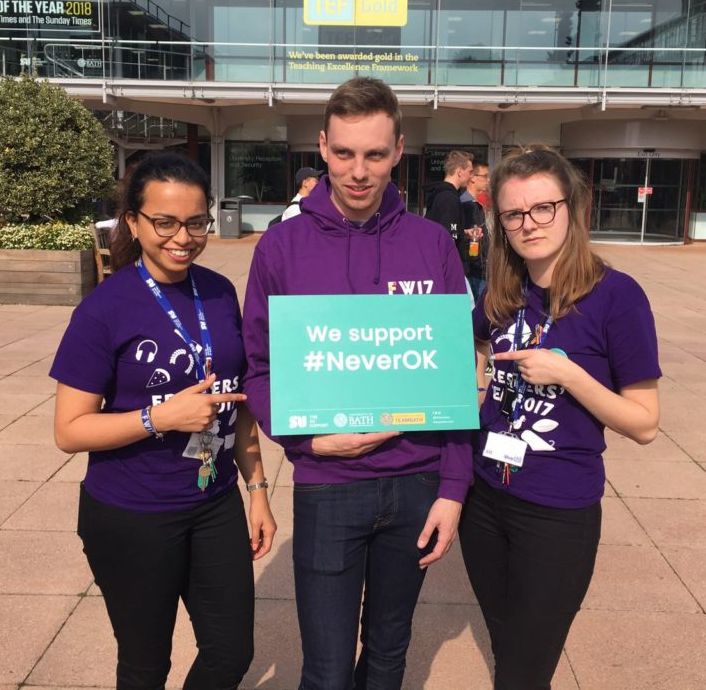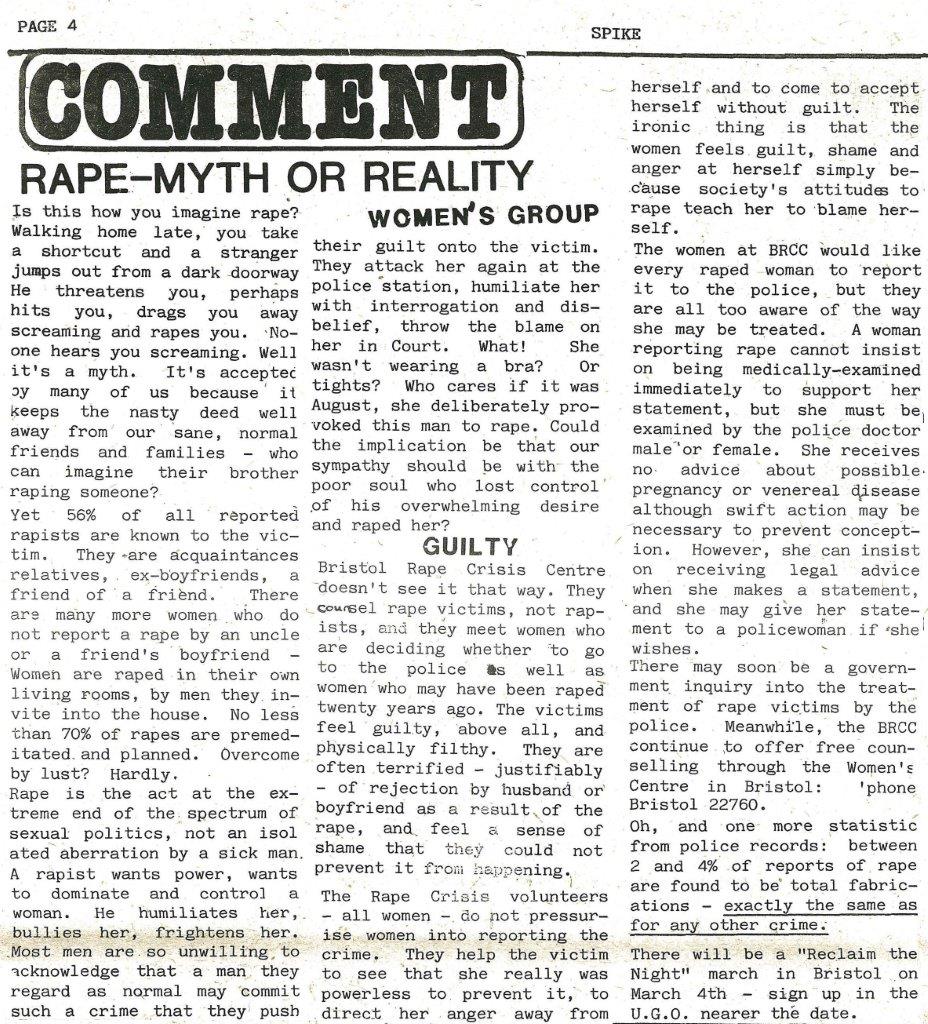Alisha Lobo uses student newspapers to evaluate past and present measures to prevent sexual misconduct, harassment, assault on campus
As a final year undergraduate politics and international relations student, I turned to the University of Bath archives to provide me with historical context to my research. My dissertation was a critique and evaluation of the flagship #NeverOK campaign to prevent sexual harassment on campus jointly launched by the Students’ Union and the University in the summer of 2017.
Reading through old editions of University of Bath student newspapers and magazines, Sul, Spike and Impact, was critical in piecing together the history of this issue on campus. I was stunned by the continued coverage over the years of the female experience of sexual harassment, misconduct and assault, and by the development of the student feminist movement. It was useful to see the changes of attitude, views and policy within the student body around topics such as safety, emergency contraception and dispelling rape myths, from the launch of early awareness campaigns by the Students’ Union in the 1970s and 1980s to where we are now.
The critique was on multiple levels; I was looking at the evolution of the university/student relationship, spending more on welfare provision than other facilities and whether awareness, education and safety initiatives focusing on sexual harassment are a justified encroachment into student freedom. I was also interested in the spread of female ‘victimhood’ with campaigns such as #NeverOK, and the overall implementation of the latest campaign through the 2017/2018 academic year.

The impact of my research in the archives was two-fold. Having worked as a section editor for Impact and as an Editor-in-Chief of the current student publication Bath Time, it was fascinating reading about seminal issues, the emergence and growth of student movements and the development of the educational experience at the University of Bath. There was a strong sense of pride to have contributed to a long history of reflecting and recording student opinion on subjects that have shaped the University community over many decades. It is something that will remain with me as I move into my new position as Students’ Union Community Officer next year. What mark will I leave of my time at the University? What will my legacy be?
